
The Hoover Institution is an American public policy think tank and research institution that promotes personal and economic liberty, free enterprise, and limited government. While the institution is formally a unit of Stanford University, it maintains an independent board of overseers and relies on its own income and donations. Fellowship appointments do not require the approval of Stanford tenure committees. It is widely described as a conservative institution, although its directors have contested its partisanship.
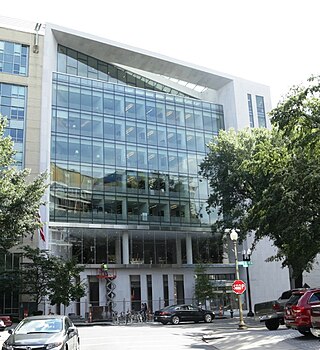
The Center for Strategic and International Studies (CSIS) is an American think tank based in Washington, D.C. It was founded as the Center for Strategic and International Studies of Georgetown University in 1962. The center conducts policy studies and strategic analyses of political, economic and security issues throughout the world, with a focus on issues concerning international relations, trade, technology, finance, energy and geostrategy.
Morris Janowitz was an American sociologist and professor who made major contributions to sociological theory, the study of prejudice, urban issues, and patriotism. He was one of the founders of military sociology and made major contributions, along with Samuel P. Huntington, to the establishment of contemporary civil-military relations. He was a professor of sociology at the University of Michigan and the University of Chicago and held a five-year chairmanship of the Sociology Department at University of Chicago. He was the Lawrence A. Kimpton Distinguished Service Professor at the University of Chicago. Janowitz was the vice-president of the American Sociological Association, receiving their Career of Distinguished Scholarship award, and a fellow of both the American Academy of Arts and Sciences and the American Philosophical Association. Janowitz also founded the Inter-University Seminar on Armed Forces and Society, as well as the journal Armed Forces & Society. He was an early founder of the field of military sociology. His students, such as David R. Segal, Mady Segal, and James Burk are prominent and influential military sociologists.

The Dwight D. Eisenhower School for National Security and Resource Strategy, formerly known as the Industrial College of the Armed Forces (ICAF), is a part of the National Defense University. It was renamed on September 6, 2012, in honor of Dwight D. Eisenhower who graduated from this school when it was previously known as the Army Industrial College.

Geoffrey Till is a British naval historian and emeritus Professor of Maritime Studies in the Defence Studies Department of King's College London. He is the Director of the Corbett Centre for Maritime Policy Studies.
Pervaiz Iqbal Cheema was a Pakistani political scientist, cricketer, and a professor of International Relations and was last working as Dean, Faculty of Contemporary Studies, National Defence University, Islamabad - Pakistan.
Mackubin Thomas Owens is a senior fellow at the Foreign Policy Research Institute. From 2015 until 2018, he served as dean of academic affairs at the Institute of World Politics. He was previously the associate dean of academics for electives and directed research and professor of strategy and force planning for the Naval War College in the U.S., as well as a contributing editor to National Review.
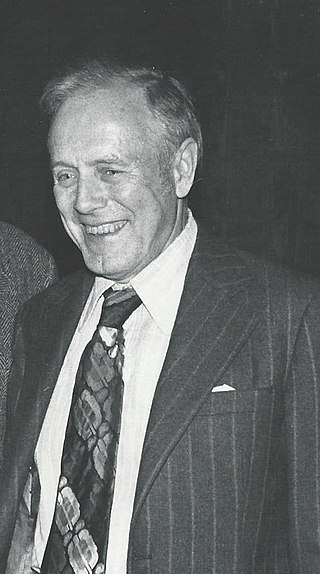
William Thornton Rickert Fox, generally known as William T. R. Fox, was an American foreign policy professor and international relations theoretician at the Columbia University. He is perhaps mostly known as the coiner of the term "superpower" in 1944. He wrote several books about the foreign policy of the United States of America and the United Kingdom. He was a pioneer in establishing international relations, and the systematic study of statecraft and war, as a major academic discipline. National security policy and an examination of civil-military relations were also focuses of his interests and career. He was the founding director of Columbia's Institute of War and Peace Studies and held the position from 1951–1976.
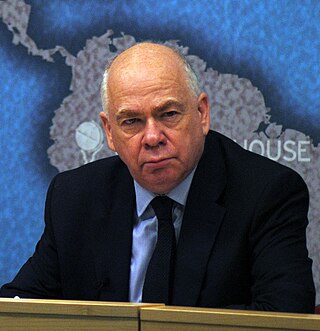
Sir Lawrence David Freedman, is a British academic, historian and author specialising in foreign policy, international relations and strategy. He has been described as the "dean of British strategic studies" and was a member of the Iraq Inquiry. He is an Emeritus Professor of War Studies at King's College London.
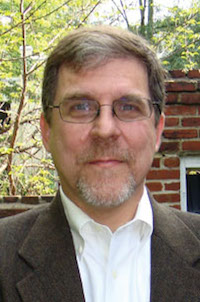
James S. Robbins is an American commentary writer for USA Today and Senior Fellow for National Security Affairs on the American Foreign Policy Council. He is the former Senior Editorial Writer for Foreign Affairs at the Washington Times, an author, political commentator and professor, with a focus on national security and foreign and military affairs. He also served as special assistant in the Office of the Secretary of Defense.

Karl Winfrid Eikenberry is a retired United States Army lieutenant general who served as the U.S. Ambassador to Afghanistan from April 2009 to July 2011. From 2011 to 2019, he was the Director of the U.S. Asia Security Initiative at the Walter H. Shorenstein Asia-Pacific Research Center and a Stanford University professor of the practice; a member of the Core Faculty at the Center for International Security and Cooperation; and an affiliated faculty member at the Freeman Spogli Institute for International Studies, Center on Democracy, Development and the Rule of Law, and The Europe Center.

Civil–military relations describes the relationship between military organizations and civil society, military organizations and other government bureaucracies, and leaders and the military. CMR incorporates a diverse, often normative field, which moves within and across management, social science and policy scales. More narrowly, it describes the relationship between the civil authority of a given society and its military authority. "The goal of any state is to harness military professional power to serve vital national security interests, while guarding against the misuse of power that can threaten the well-being of its people." Studies of civil-military relations often rest on a normative assumption that it is preferable to have the ultimate responsibility for a country's strategic decision-making to lie in the hands of the civilian political leadership rather than a military.

The Center for Strategic Studies under the president of the Republic of Azerbaijan (SAM) is Azerbaijan’s first governmental, non-profit think tank founded on November 12, 2007, by the decree of the president, Ilham Aliyev. Its headquarters is in Baku, Azerbaijan. In February 2008, by the decree of the president of the Republic of Azerbaijan, Elkhan Nuriyev was appointed director of the Center for Strategic Studies, known by the acronym SAM in Azerbaijani language.

William C. Martel was a scholar who specialized in studying the leadership and policymaking processes in organizations, strategic planning, cyberwarfare and militarisation of space, and technology innovation. He taught at the U.S. Air War College and U.S. Naval War College, and performed research for DARPA and the RAND Corporation. He later become Associate Professor of International Security Studies at the Fletcher School of Law and Diplomacy, a position he held until his death in 2015.

Michael John "Mike" Williams is an international relations scholar, former advisor for the Department of State, and former Congressional candidate for the 5th District of Connecticut. Williams is the author of numerous books focusing on foreign affairs. In 2006 he was elected a 'Young-Leader' by the Atlantic Bridge (Atlantik-Bruecke) foundation dedicated to developing US-European relations. Since 2008, Williams has been a faculty member in International Relations at Royal Holloway, University of London, where he presently holds the rank of Reader.
John Allen Williams, also known as Jay Williams, is a professor emeritus of political science at Loyola University Chicago and is the former chair and president of the Inter-University Seminar on Armed Forces and Society (2003–2013). He serves on the editorial board of the National Strategy Forum in Chicago, is editor of the National Strategy Forum Review, and is on the board of directors for the Pritzker Military Museum & Library.
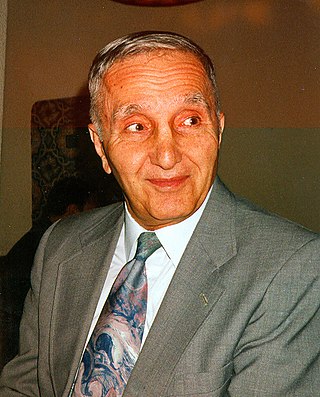
Sam Charles Sarkesian was a prominent scholar of civil-military relations and national security, who published numerous books and articles concerning various topics in these areas. He was also a member of the military, serving in Korea and Vietnam. He retired from the U.S. Army as a Lieutenant Colonel. He was also a professor emeritus of political science at Loyola University Chicago, where he was the Chair of the political science department and influenced many new scholars in the field. He also served as the second president of the Inter-University Seminar on Armed Forces & Society (IUS). His memory is strong in the IUS, as many of its fellows were his students.

David R. Segal is an American sociologist who specializes in civil-military relations, military sociology, and military organization, in the tradition of Morris Janowitz. He is a distinguished scholar-teacher and professor emeritus of sociology at the University of Maryland. He is the founding director of the Center for Research on Military Organization, and is a former president of the Inter-University Seminar on Armed Forces and Society, as well as a former editor of the journal Armed Forces & Society. He has also served as president of the District of Columbia Sociological Society and of the Section on Armed Forces and Conflict Resolution of the International Sociological Association, and chair of the Section on Peace, War, and Social Conflict of the American Sociological Association. He attended public school in Brooklyn, New York, and earned his B.A. from Harpur College, Binghamton University. He earned a PhD in sociology at University of Chicago. He began his academic career in the sociology department at the University of Michigan in 1966, and served as director of graduate studies, associate chair of the department, and director of the Center for Research on Social Organization. in 1973, he took a leave of absence from Michigan to direct the sociology program at the U.S. Army Research Institute for the Behavioral and Social Sciences.

Richard H. Shultz, Jr. is an American scholar of international security studies. He is a Professor International Politics at The Fletcher School of Law and Diplomacy, Tufts University, where he is also the director of the International Security Studies Program (ISSP).
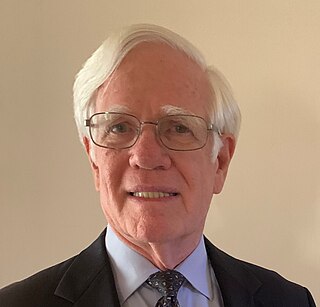
Linton Wells II is an American public servant and educator who served a total of 51 years in government service. He served 26 years in the United States Navy as an officer, and then was appointed by the President of the United States as the Principal Deputy Assistant Secretary of Defense, serving through two administrations of both parties, both the Democrat Bill Clinton and the Republican George W. Bush. He wrote many books, articles, and white papers on matters of national security, including important texts related to the use of American military capabilities in global humanitarian operations. His expertise focused on the strategic impacts of technological change and on building resilience to natural and man-made disasters as issues of US national security. He shaped, over five decades of public service, current US Department of Defense directives that link policy and technology with public-private cooperation. His writings significantly altered U.S. and international approaches to civil-military engagement, US policy in global humanitarian assistance, and global public-private partnerships in disaster relief. He has also made fundamental contributions to technical areas that have defined network-enabled military capabilities and cyberspace operations. After retiring from public service, he continued to contribute to the international STAR-TIDES network that he had founded in 2007, a consortium of several thousand global nodes comprising agencies, organizations, institutions and individuals in 40+ countries that promote the free exchange of research results on global issues of human security. As of 2021 he is Executive Advisor to the Center for Resilient and Sustainable Communities (C-RASC) at George Mason University and chairs the Advisory Group of the C4I and Cyber Center there. C-RASC has been working with the People-Centered Internet (PCI) on ways to “put humanity at the center of the Internet” and support a variety of revitalization initiatives. He is on the board of PCI, and also the President and CEO of Global Resilience Strategies and Senior Advisor to Resilient Japan. He was listed by Fortune magazine in 2009 as one of the top 16 "Players of Tech".
















